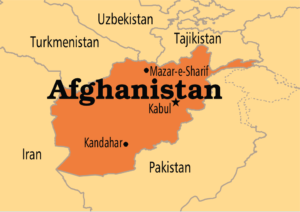UNITED NATIONS, June 27 (APP):A senior Pakistani diplomat has urged Afghan parties and the world community to seize the opportunity presented by the recent moves towards reconciliation in Afghanistan to help promote durable peace in the war-torn country, saying Pakistan would assist the process.
“While the onus for seizing the moment rests on the parties directly involved in the Afghan conflict, Pakistan, for its part, will continue to do what it can to support all efforts to launch a credible peace process,” Ambassador Maleeha Lodhi, permanent representative to the UN, told the UN Security Council on Tuesday.
Speaking in a debate on the situation in Afghanistan, she said the occasion of Eid-ul-Fitr had seen scenes of reconciliation between those who for years had fought a bloody war.
“The comprehensive observance of the ceasefire by the Taliban also demonstrated that its leadership has control of the movement and is cohesive enough to negotiate a political settlement,” the Pakistani envoy pointed out.
Pakistan, she said, had all along advocated for a negotiated settlement, which was the only viable solution to end the conflict.
In that regard, Ambassador Lodhi welcomed Afghan President Ashraf Ghani’s offer to talk to the Taliban without preconditions and the US support for a negotiated settlement.
“The ceasefire earlier this month has demonstrated that negotiations are not only possible but can produce a positive outcome,” she said.
“The opportunity that has opened up by recent developments must now be seized and translated into serious and sustained efforts to promote a political settlement and durable peace and stability in Afghanistan,” the Pakistani envoy told the 15-member Council.
Opening the debate, the UN envoy to Afghanistan also spoke about the “unprecedented opportunities” to seek peace and consolidate the country’s political foundation.
Tadamichi Yamamoto, head of the UN Assistance Mission in Afghanistan (UNAMA), briefed the ambassadors pn what he called the current politically dynamic period that has seen ceasefires by the Government and the Taliban and preparations for elections in October.
In her remarks, Ambassador Lodhi said Pakistan’s participation in all regional and international forums on peace and reconciliation in Afghanistan, including the Moscow format, was a reflection of its commitment to a peace process and Islamabad could support any agreed format for negotiations that enables all directly engaged parties to talk to each other.
“We feel that the Quadrilateral Coordination Group (QCG) consisting of Pakistan, Afghanistan, China, and the US, remains a useful format to pursue a negotiated settlement,” she said, adding a QCG-Plus format can also be considered that brings all of Afghanistan’s neighbours into the process.
“A negotiated peace and national reconciliation is all the more vital to prevent the threat posed to Afghanistan, its neighbours and the global community by the presence of Daesh and a conglomerate of terrorists, including the TTP, ETIM, IMU, and others groups that have adopted the umbrella of Daesh.
“They need to be defeated urgently and decisively,” Ambassador Lodhi said. “We must not allow these groups to drive Afghanistan into another vortex of violence and instability, which would compound the threat to the region’s security
Pakistan’s security, she said, was inextricably linked to peace and stability in Afghanistan and Islamabad had a vital interest in a peaceful, stable, united and prosperous Afghanistan.
Pakistan stood ready to support Afghanistan in addressing the multiple challenges it faces and Islamabad had engaged with Kabul in a comprehensive manner, in the political, economic and military spheres. A series of high-level visits by the two countries’ political and military leaders have taken place in recent months and helped create an environment of trust and inject a positive impetus to their bilateral relations.
The recently concluded Afghanistan-Pakistan Action Plan for Peace and Solidarity (APAPPS) , she said, would provide a structured platform for engagement between the two countries.
To strengthen defence cooperation, Pakistan was working with the Afghan government on modalities to deploy military liaison officers on either side, to coordinate counter terrorism efforts, and complement action against terrorist outfits on Pakistani side of the border.
“We must secure our border to prevent the cross border movement of terrorists,” she said.
The international community, she reminded, was unanimous in its view that sustainable peace was only achievable through a negotiated end to the conflict.
“Almost 17 years of war, waged by the world’s most powerful military forces has not yielded a military solution,” the Pakistani envoy pointed out.
The Afghan parties must now commit themselves to a negotiated solution to the conflict, she said.
“This offers the best chance to end the suffering of the Afghan people and restore peace to Afghanistan and stability to the region,” Ambassador Lodhi added.
Afghan Ambassador Mahmoud Saikal speech was generally positive. Ultimately, he said, the success hinged on strengthening Afghan unity, keeping people involved, managing future ceasefires and negotiations, ensuring genuine implementation of the Afghanistan-Pakistan action plan for peace and solidarity, and improving consensus on international efforts in the country.
But the Indian Ambassador Syed Akbaruddin claimed that terrorism in Afghanistan was not a local problem. The Council must better tackle transnational drug, terrorism and criminal networks, as some continued to provide sanctuary to the Taliban, the Haqqani Network, ISIL, Al-Qaeda, Lashkar-e-Toiba and Jaish-e-Mohammad, he said.

